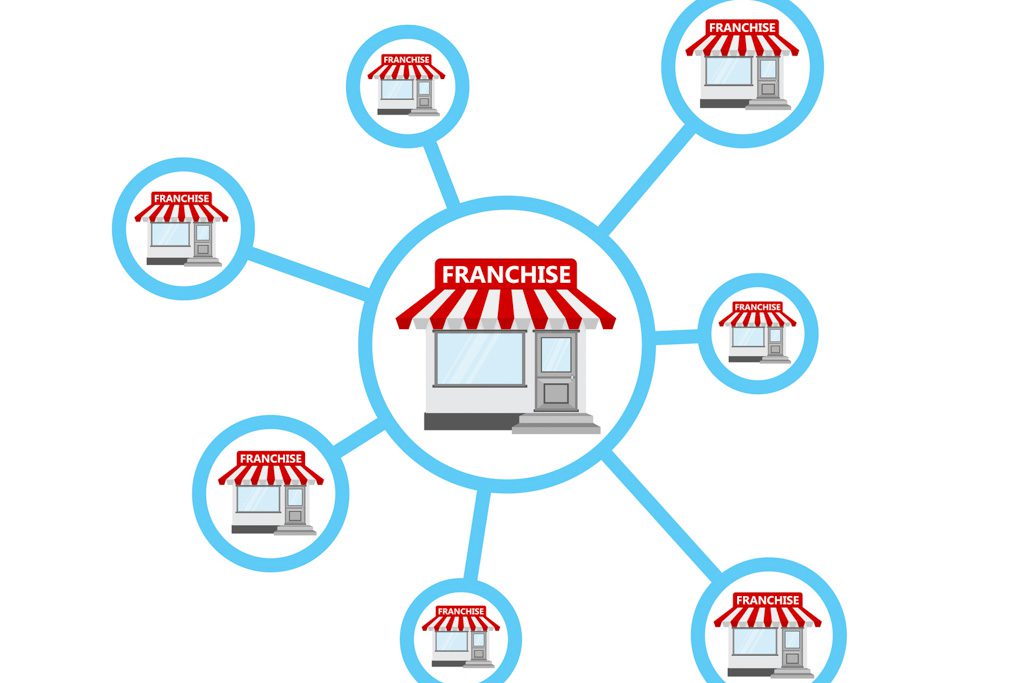What happens when any company ends the conversation on its media platforms?
Nothing good.
Here’s your experiment: Check out local gyms on social media and visit their websites.
What do you think about a gym that updates its blog and posts to social media every day?
And what about a gym that hasn’t made a post in nine months?

Gyms that tell their story every day feel like vibrant, growing, professional businesses, right?
Gyms that don’t feel lifeless and stale. They look like rickety operations that are a sneeze away from closing.
It’s the same thing with large, global brands, including those that sell franchises and affiliation.
Think of a company like Subway. The franchisees sell sandwiches. The franchisor sells franchises but also collects 12.5 percent royalties on sandwich sales (4.5 percent of that is for advertising), so it wins when:
1. Entrepreneurs view the brand as a great investment and open more franchises.
2. Franchises sell a ton of sandwiches through direct marketing and kick greater royalty payments up the ladder.
That’s why Subway advertises so much, pays top-shelf talent like Steph Curry to appear in the ads, and posts to social media all the time (the company has 1.4 million followers on Instagram).
It’s all about raising the status of the brand overall and making it easier for the business owner on Main Street to sell subs.
Fitness, Advertising and Branding Concerns
The principle is the same in the fitness industry.
For example, Planet Fitness franchise owners pay initial fees as well as ongoing royalty and ad fees (breakdown here). The parent company builds the brand so more people open gyms and more local clients buy memberships at those gyms. It’s supposed to be wins all around.
So what happens if the conversation stops—or goes really badly?
Well, I imagine the franchisees would immediately demand a reduction in royalty/ad fees. “What am I paying for if you’re not supporting my business?” Or, “That ad campaign is actually driving people away!”
At that point, the franchisees would have to start telling their own stories fast. Smart owners are already doing that.
Some structures make this easier than others. For example, you can’t find social media accounts for individual Planet Fitness locations; they rely on the mother corp.
But lots of F45 franchises have their own social accounts that are separate from the corporate account with the big, blue checkmark.
I like the latter approach better. It’s a hedge against missteps or abandonment by the franchisor. And it helps you connect with real local people. Franchises are supposed to be ultra-replicable, but it’s a mistake to think a slick national ad campaign is a complete replacement for a great trainer who can tell a local mom “I can help you get stronger at my gym.”
Unless a license agreement specifically forbids it, gym owners are wise to double down on corporate messaging so they can build local audiences and tell a unique story, even if it has elements in common with the other franchises.
If you’re a 100 percent independent gym owner, you should be telling your story loudly and daily on any platform your clients and prospective clients use.
If you’re involved in any structure, I’d still encourage you to build your own audience in any way your license agreement allows. Support from a franchisor/licensor is great. But if it’s misguided, or if it vanishes completely, you’re on your own.
Remember, the mother corp wants each associated entrepreneur to succeed, but that’s really a secondary concern. Parent corps are ultimately self-interested: They want improved share prices and dividends, jacked-up and ever-increasing value if the company isn’t public, and more revenue from the franchising/licensing stream. The corporate story will always be more important than the story of a single gym owner.
It’s not uncommon to see lawsuits involving franchisors and franchisees. In a 2017 suit that’s particularly relevant to this discussion, “a franchisee called 1523428 Ontario Inc. alleged that Tim Hortons increased charges for administrative costs after the merger (with Burger King). Charges rose even though the company let go of nearly half of the employees responsible for promotional activities, whose compensation was previously charged to the fund.”
Second Cup, a coffee chain, ran into a similar suit in 2018.
Chicken chain Bojangles ran afoul of franchise owners in 2024: “Such (marketing) funds can become sources of tension when franchisees believe the money is being misused, or is being used for the franchisor’s purposes, such as selling franchises or for general corporate purposes.”
With that in mind, wise entrepreneurs always evaluate the value provided by a parent company. And they do anything they can to tell their own stories daily and build their businesses.
Tell Your Gym’s Story
The best defense against missteps by a parent company: Tell your story every day on your own platforms. Don’t abdicate responsibility for that (unless your agreement forbids you from doing so).
Most gyms, especially coaching gyms, are free to build their brands as they see fit, and I’d suggest doing so is not optional. You must take responsibility for building a local audience and connecting with prospective clients. (The content pipeline is one of four funnels Two-Brain mentors help gym owners build.)
If you don’t know what to say in your content, just make your existing clients famous: Post success stories and photos of smiling clients so viewers know “people like us do things like this,” to quote Seth Godin.
And if you’re a Two-Brain client, dig into the Content Vault. The monstrous pile of done-for-you resources in there will help you tell a great story daily for more than a year with almost no effort at all. Your mentor will also help you ensure your content marketing funnel is clog-free.
Whatever you do, don’t rely on anyone else to tell your story for you.
If you choose to rely on someone else, what happens to your business when the parent company goes silent?

